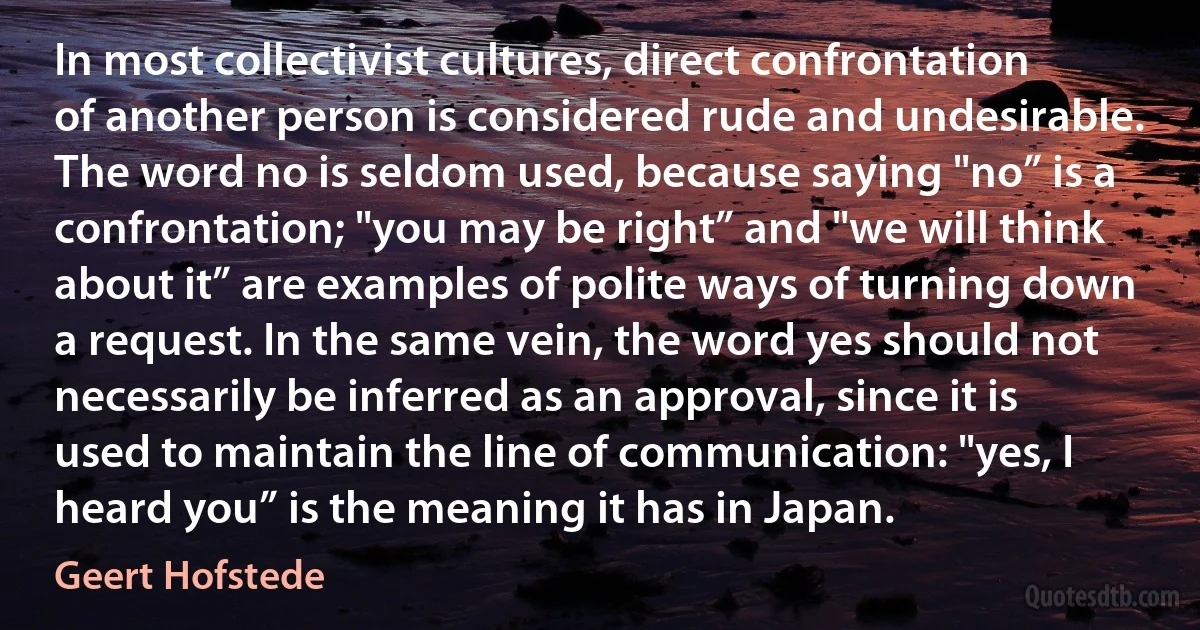
In most collectivist cultures, direct confrontation of another person is considered rude and undesirable. The word no is seldom used, because saying "no” is a confrontation; "you may be right” and "we will think about it” are examples of polite ways of turning down a request. In the same vein, the word yes should not necessarily be inferred as an approval, since it is used to maintain the line of communication: "yes, I heard you” is the meaning it has in Japan.
Geert HofstedeRelated topics
collectivist communication confrontation japan line meaning person right saying should think turning word yes waysRelated quotes
After 7,000 biblical years - 6,000 years of restoration history plus the millennium, the time of completion - communism will fall in its 70th year. Here is the meaning of the year 1978. Communism, begun in 1917, could maintain itself approximately 60 years and reach its peak. So 1978 is the border line and afterward communism will decline; in the 70th year it will be altogether ruined. This is true. Therefore, now is the time for people who are studying communism to abandon it.

Sun Myung Moon
he seldom or never spoke except actually to convey an idea. Measured by quantity of words, he was a talker of fully average copiousness; by extent of meaning communicated, he was the most copious I have listened to. How in few sentences he would sketch you off an entire biography, an entire object or transaction, keen, clear, rugged, genuine, completely rounded In! His words came direct from the heart by the inspiration of the moment.

Thomas Carlyle
The art of the theater is action. It is the study of commitment. The word is an act. To SAY the word in such a way as to make it heard and understood by all in the theater is a commitment -- it is the highest art to see a human being out on a stage speaking to a thousand of his or her peers saying, 'These words which I am speaking are the TRUTH -- they are not an approximation of any kind. They are the God's truth, and I support them with my life,' which is what the actor does on stage.

David Mamet
I write with two things in mind. I want to be right with my fellow economists. After all, I've made my life as a professional economist, so I'm careful that my economics is as it should be. But I have long felt that there's no economic proposition that can't be stated in clear, accessible language. So I try to be right with my fellow economists, but I try to have an audience of any interested, intelligent person.

John Kenneth Galbraith
...what I mean by Socialism is a condition of society in which there should be neither rich nor poor, neither master nor master's man, neither idle nor overworked, neither brainslack brain workers, nor heartsick hand workers, in a word, in which all men would be living in equality of condition, and would manage their affairs unwastefully, and with the full consciousness that harm to one would mean harm to all-the realisation at last of the meaning of the word commonwealth.

William Morris
